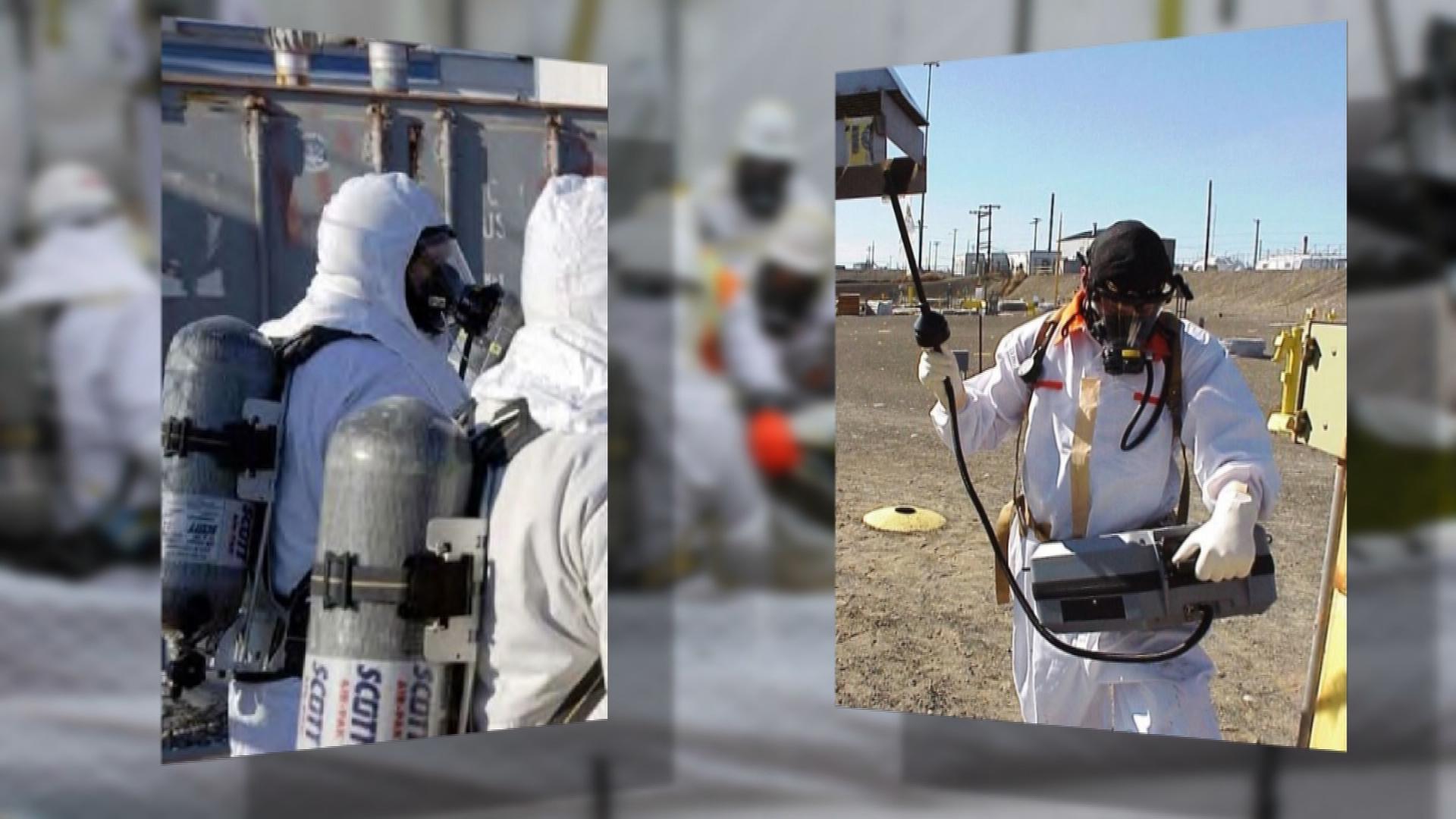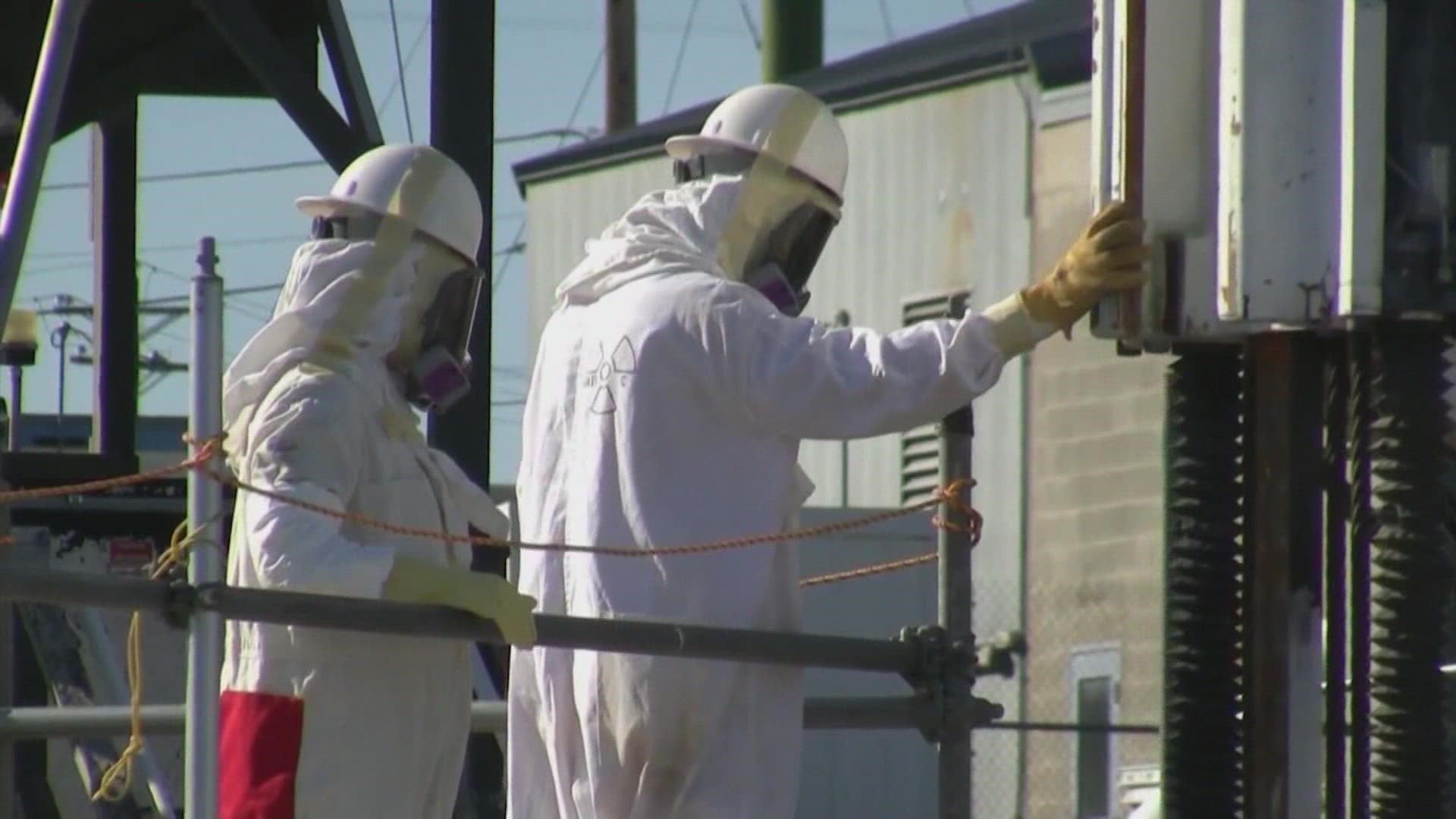Members of the House Labor and Workplace Standards Committee heard emotional testimony from sick Hanford workers Thursday who drove over snowy roads from the Tri-Cities to get their voices heard.
“All I did wrong was go to work and trusted these people that I worked for. I trusted DOE (the US Dept. of Energy), I trusted the contractors and I thought I was safe,” said Seth Ellingsworth.
Ellingsworth has been unable to work or take a full breath of air since an exposure to chemical vapors 18 months ago. A once healthy 35-year-old man, he's been diagnosed with reactive airway disease and severe asthma.
“If we are able to make a (worker compensation) claim, then they want us to prove what we were exposed to," Ellingsworth said. "They don’t know what we were exposed to. Out of thousands of chemicals, they check for a handful at a time. So if they don’t know what we were exposed to, how can we prove what we were exposed to? So many of us give up and take it and there’s nothing we can do about it.”
Now they’re asking state lawmakers to do something about the decades old problem at the nuclear site: the systematic denial of worker compensation claims.
HB 1723 aims to help workers diagnosed with certain illnesses get the care and compensation they need. The bill, sponsored by Rep. Larry Haler, R-Richland, would grant a presumption of occupational illness for Hanford workers, similar to what the legislature granted to firefighters in 1987. The illness included for Hanford workers include respiratory disease, heart problems experienced after an exposure to toxic chemicals, neurological diseases, such as toxic encephalopathy (occupational induced dementia), and certain cancers.
“I have liver disease, cirrhosis. I’ve never had a drink in my life. I’ve never smoked and my health, excuse me, my health is greatly affected by it,” said current Hanford worker Don Slaugh, who fought the cumbersome system for years.
Records obtained by KING 5 show that over the last six years at Hanford, worker comp claims have been rejected at a rate 52 percent higher than the state average. Dozens of workers say it doesn’t make sense that there is a higher denial rate at the most dangerous place to work in the state.
“It’s like they want you to quit. They got the wrong dog here, because I’m not letting go of the bone. And I’m angry, angry,” said Melinda Rouse whose husband has been diagnosed with occupational induced dementia but has been unable to have a worker compensation claim accepted. “They spend millions of dollars denying claims that they could be putting toward these workers who are sick and dying.”
The worker compensation system is not managed by the Washington State Department of Labor and Industries. Instead, the state and the U.S. Department of Energy, which owns Hanford, have a special agreement that allows the feds to run their own program. The DOE pays a third party administrator, Penser North America, to screen, filter and manage claims.
“If a higher denial rate is good for Penser, shame on Penser and shame on the Department of Energy. Our federal government has had the opportunity to fix this problem for decades and has not stepped up to the moral imperative. But you and our legislature can right this wrong,” said Jeff Johnson, President of the Washington State Labor Council.
“I want you to remember these guys were just going to work,” said Nick Bumpaous of the Pipefitters Union Local 598. “(The U.S. Dept. of Energy) has denied the existence of chemical vapors, they have denied that workers are being exposed to them, they have denied the health effects they’re having on these workers. They have continued to allow these men and women, these Washington state citizens, these champions of the nation to be put into these situations.”
Those testifying against the bill said the language is too broad and isn’t strict enough in demanding medical proof that the worker’s illness is linked to his or her job at Hanford.
“It’s overly broad,” said Bill Battles of the Association of Washington Businesses. “It lasts forever and applies to everyone who’s worked on the site for even eight hours.”
The federal government produced plutonium at Hanford for 45 years. The material fueled the nuclear bomb dropped on Nagasaki, Japan. After World War II, production focused on making plutonium for the country’s stockpile of nuclear weapons throughout the Cold War. Production stopped in 1989.
Since then, the mission has been exclusively focused on clean up. The effort has been hobbled by leaking nuclear waste tanks, a problematic safety culture and technical challenges that have prevented the implementation of technology to permanently dispose of 56 million gallons of liquid waste stored in aging underground tanks.
The Department of Energy did not have a representative testify at the hearing. The House committee has until next Friday to vote the bill out of committee.



